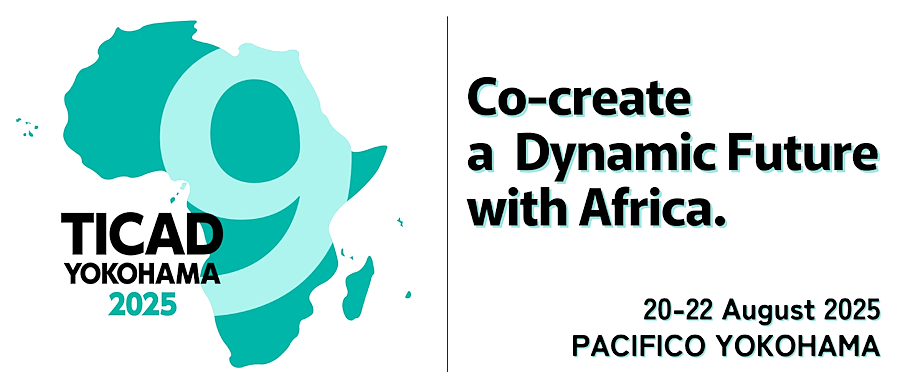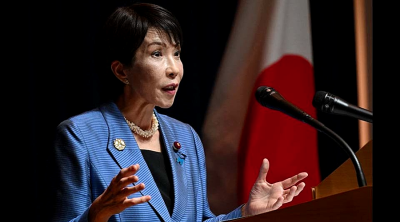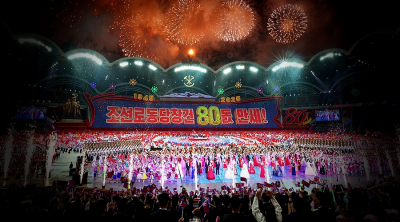
The Tokyo International Conference on African Development (TICAD) began in 1993 as a multilateral conference focused on “African development.”
With a projected economic market size of over 2.4 billion people by 2050 and an abundance of critical minerals, Africa has altered Japan’s position in economic diplomacy and economic security.
Additionally, Africa is a region with a strong presence in terms of the number of countries in the group of countries known as the “Global South,” and has been recognized as a region of even greater diplomatic importance.
Furthermore, a series of “Africa + 1 Summits,” originating from TICAD and hosted by major countries inviting leaders from African countries, are being held one after another.
This indicates that major countries and emerging donors are making a noticeable effort to strengthen their ties with Africa once again.
Amidst this proliferation of “Africa + 1 Summits,” what is TICAD aiming for?
Current status of ‘Africa + 1 summits’
The Forum on China-Africa Cooperation (FOCAC), first hosted by China in 2000, was inspired by TICAD.
Its distinctive feature is its influence on the creation of recent “Africa + 1 Summits.”
Although FOCAC is a ministerial-level meeting by default, it is held as a summit when a certain number of African leaders are expected to attend.
FOCAC 9, held in Beijing in September 2024, was the fourth summit, following the previous two Beijing summits and the Johannesburg summit in South Africa.
South Korea has hosted the ministerial-level Korea-Africa Economic Cooperation Conference (KOAFEC) since 2006.
In June 2024, South Korea will host its inaugural Korea-Africa Summit, which will mark the beginning of negotiations for an economic partnership agreement (EPA) with African countries.
In addition to China, India, a BRICS member, hosted the first India-Africa Forum Summit in 2008. This was followed by summits in 2011 and 2015.
These summits strengthened ties in areas such as development assistance, economic cooperation, and south-south cooperation.
However, a fourth summit has yet to be held. Indonesia, which joined BRICS in January 2025, hosted the first Indonesia-Africa Forum (IAF) in 2018 and the second IAF in September 2024.
Since the second IAF took place right before FOCAC 9, only four African leaders attended; however, an African delegation from around 20 countries was present.
Gulf countries are also increasingly involved in Africa. Saudi Arabia, which has held off joining BRICS, has recently begun to show interest in Africa and held a summit-level meeting in 2023.
Of particular note is that among the Gulf countries, the United Arab Emirates (UAE), which joined BRICS in January 2024, is expanding into Africa most rapidly.
This movement is expected to accelerate in the future, including through investment in critical minerals as part of a long-term “decarbonization (de-oil)” strategy.
Among the Middle Eastern countries, Turkey has also strengthened its involvement in Africa in recent years.
Turkey hosted the first Africa-Turkey Partnership Summit in 2008 and the third summit in December 2021 amid the pandemic.
Five priority areas were identified at this summit for the period from 2022 to 2026: security, trade and investment, education, infrastructure development and agriculture, and public health. Cooperation in these areas was strengthened.
In addition to these Africa-related meetings, which primarily involve emerging donors, Russia—seeking to strengthen its engagement in Africa—hosted the Russia-Africa Summit in Sochi in 2019 and in St. Petersburg in 2023.
Since the late 2010s, European countries (Italy, Germany, France, and the UK) have also been holding summits with African countries.
Italy has expressed significant interest in addressing the influx of illegal immigrants from Africa. The US has hosted two summit-level meetings, though only during Democratic administrations.
Some “Africa + 1 Summits” are held regularly, while others are irregular or whose future holding is unclear, resulting in a profusion of such meetings.
This is due to countries reaffirming Africa’s political and economic importance and growing concerns about illegal immigration.
At the same time, it has been noted that African countries benefit from the opportunity to receive more favorable aid without being bound by traditional conditions.
Meaning of TICAD
The proliferation of “Africa + 1 Summits” reflects the current situation in which no single country exerts overwhelming influence over international relations surrounding Africa.
The author discusses this situation using the concept of “thin hegemony.”
While new countries are emerging with a certain degree of influence in various regions of Africa, former colonial powers that previously held influence are being forced to withdraw.
As demonstrated by the second Trump administration’s reciprocal tariff policy, it appears that the international order is undergoing a major transition.
head of TICAD 9 in Yokohama, Japan in August 2025, it is important to review the outcomes of the 2024 TICAD ministerial meeting.
While continuing the traditional TICAD agenda, four approaches spanning the three pillars of economy, peace and stability, and society were proposed: connectivity; women, youth, and Women, Peace, and Security (WPS); public-private partnerships; and building inclusive and responsible global governance that promotes a free, open, and fair international order based on international law.
This final approach is essentially a continuation and development of the “Free and Open Indo-Pacific” initiative.
The TICAD Ministerial Meeting Joint Communiqué touches on social development issues such as Universal Health Coverage (UHC), which Japan has emphasized, but it also notes, in relation to public-private partnerships, that “We committed to making efforts to forge strategic partnerships with the private sector in order to improve Africa’s business environment for inclusive economic growth and sustainable development.”
The communiqué also mentions the need for the effective and responsible use of digital technologies, including artificial intelligence (AI).
With the support of the Japanese government, it will be important for TICAD 9 to clearly position the development of new industries in Africa and universal health coverage (UHC) as priority areas of cooperation—starting with support for startups, particularly among young people in Japan.
Through these efforts, Japan must convincingly demonstrate its commitment to laying the foundations necessary for achieving the African Union’s Agenda 2063 vision of “a prosperous Africa based on inclusive growth and sustainable development.”
This cooperative framework will contribute to shaping the future relationship between Africa and Japan, particularly by fostering human resources capable of jointly tackling diverse policy challenges.
In this context, it is essential that TICAD continues to serve as a meaningful forum for sharing and discussing Africa-related issues, while maintaining a long-term perspective and consistently operating within a multilateral framework amid a rapidly changing international landscape.
(Mitsugi Endo is Professor at University of Tokyo, Japan.)
ADVERTISEMENT
ADVERTISEMENT








































